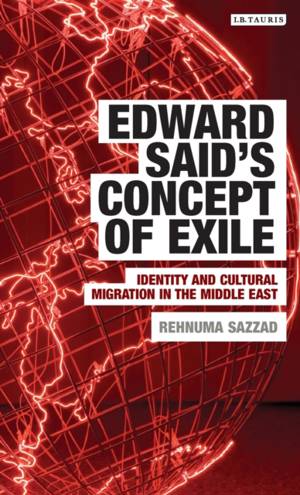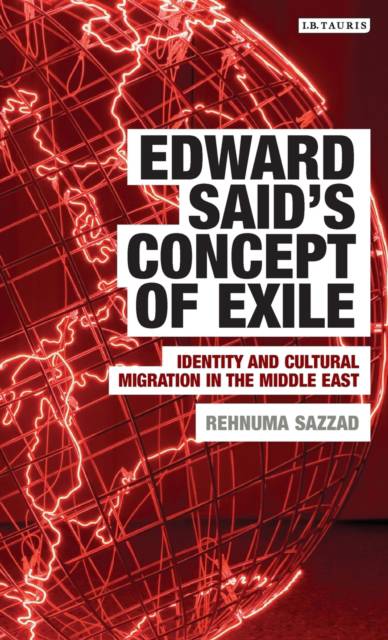
- Afhalen na 1 uur in een winkel met voorraad
- Gratis thuislevering in België vanaf € 30
- Ruim aanbod met 7 miljoen producten
- Afhalen na 1 uur in een winkel met voorraad
- Gratis thuislevering in België vanaf € 30
- Ruim aanbod met 7 miljoen producten
Zoeken
€ 271,45
+ 542 punten
Omschrijving
Edward Said was an exiled individual - the 'out of place' Palestinian in the USA. He saw the consequences of the 1948 dismantling of Palestine and the establishment of Israel through his parents' experiences and through the collective statelessness imposed on the Palestinians. His own personal experience of exile intensified when he moved to the USA. Yet despite the significance of exile to Said's life and work, no scholarship has yet focused on this theme in his writings or traced its ongoing applicability and importance. Rehnuma Sazzad fulfils this pressing need in literary and cultural research by providing the first comprehensive definition of Said's theory of exile and revealing its legacy in relation to five Middle Eastern intellectuals: Naguib Mahfouz, Mahmoud Darwish, Leila Ahmed, Nawal El Saadawi and Youssef Chahine. Sazzad argues that for Said, the ideal intellectual is a metaphorical exile. This exile does not have to be spatially disconnected from a homeland, but must demonstrate a willing homelessness through specific strategies and techniques.
By selecting a novelist, poet, feminist, filmmaker and essayist, Sazzad shows how intellectuals from diverse fields become part of the Saidian discourse through the expression of these 'exilic' qualities. The book creates a portrait of redoubtable intellectual practice and in the twenty-first century context, when the frontiers of belonging are constantly redrawn, Edward Said's Concept of Exile adds new depths to discourses of resistance, home and identity.
By selecting a novelist, poet, feminist, filmmaker and essayist, Sazzad shows how intellectuals from diverse fields become part of the Saidian discourse through the expression of these 'exilic' qualities. The book creates a portrait of redoubtable intellectual practice and in the twenty-first century context, when the frontiers of belonging are constantly redrawn, Edward Said's Concept of Exile adds new depths to discourses of resistance, home and identity.
Specificaties
Betrokkenen
- Auteur(s):
- Uitgeverij:
Inhoud
- Aantal bladzijden:
- 288
- Taal:
- Engels
- Reeks:
Eigenschappen
- Productcode (EAN):
- 9781784536879
- Verschijningsdatum:
- 30/09/2017
- Uitvoering:
- Hardcover
- Formaat:
- Genaaid
- Afmetingen:
- 145 mm x 218 mm
- Gewicht:
- 476 g

Alleen bij Standaard Boekhandel
+ 542 punten op je klantenkaart van Standaard Boekhandel
Beoordelingen
We publiceren alleen reviews die voldoen aan de voorwaarden voor reviews. Bekijk onze voorwaarden voor reviews.








